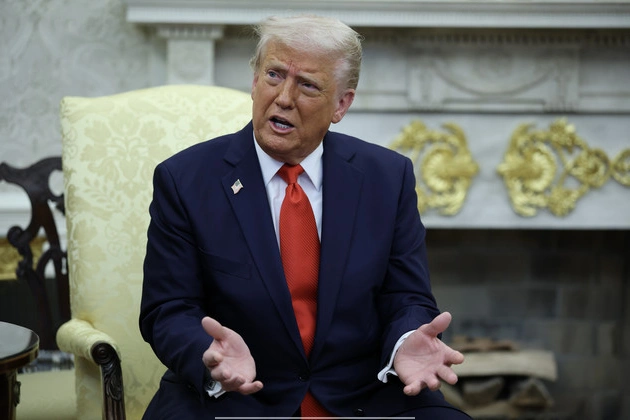
The White House is vigorously defending the deportation of Kilmar Abrego Garcia, a native Salvadoran, in response to mounting criticism from Democrats and judicial scrutiny. President Donald Trump’s administration views Abrego Garcia as part of their tough stance on immigration enforcement, despite his lack of criminal charges. However, federal judges have rebuked the administration’s handling of the case, labeling the deportation as an “administrative error.”
The Legal Battle and Public Perception
Following a federal court’s order to facilitate Abrego Garcia’s return to the U.S. due to fears of persecution in El Salvador, the administration faced challenges in complying with the ruling. While Trump’s aides labeled Abrego Garcia as an MS-13 gang member and a terrorist, the judiciary found no substantial evidence supporting these claims.
Despite the lack of concrete proof linking Abrego Garcia to criminal activities, the White House continued its rhetoric, emphasizing the need to deport dangerous individuals. The case exemplifies the broader immigration debate, with Democrats intensifying their criticism and actively engaging in seeking Abrego Garcia’s release.
Political Maneuvering and Legal Wrangling
Senator Chris Van Hollen’s visit to El Salvador to advocate for Abrego Garcia’s release underscored the political divide over immigration policies. The contrasting narratives between the administration and critics reflect the complexity of immigration enforcement and due process considerations.
The deportation of Abrego Garcia and similar cases highlight the challenges of balancing national security concerns with legal protections for individuals. The back-and-forth between different branches of government and advocacy groups signals ongoing debates on immigration reform and enforcement strategies.
Seeking Justice and Transparency
Ensuring judicial oversight and due process in deportation proceedings is crucial for upholding the rule of law and protecting individual rights. The case of Abrego Garcia serves as a reminder of the need for transparency and accountability in immigration enforcement actions.
As the legal battles continue and public scrutiny intensifies, the White House’s handling of high-profile deportation cases like Abrego Garcia’s will shape the broader discourse on immigration policies and the administration’s commitment to upholding the law.











